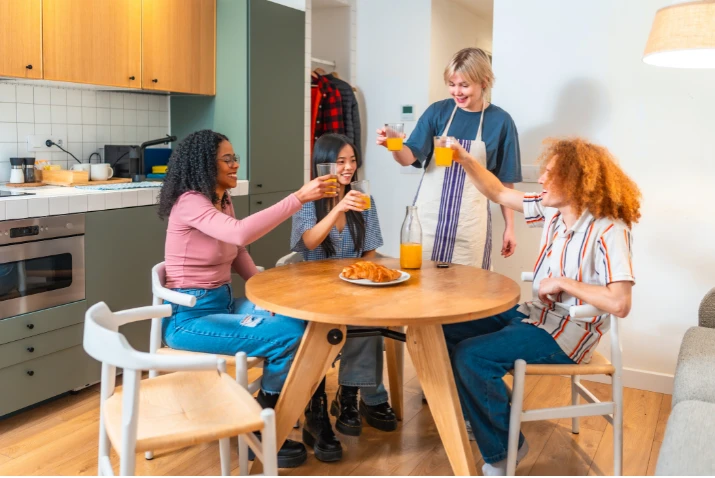For just over a decade, the Government has operated ‘Help to Buy’ schemes in England. The first of these, ‘NewBuy’, which ran from 2012 to 2015, enabled people to buy new-build homes with just a 5% deposit, with the mortgage guaranteed by the Government. The property had to be built by a homebuilder taking part in the scheme and the 95% mortgage was only provided by certain lenders. This scheme was open to everyone, not just first-time buyers.
Then in 2013, ‘Help to Buy: Equity Loan’ was introduced as an alternative way to help people with insufficient deposit funds get an affordable mortgage. Under this scheme, as long as applicants could raise a 5% deposit and secure a repayment mortgage for at least 75% of the price of a new-build home (60% in London), the Government loaned them the difference - between 5% and 20% (40% in London) of the purchase price.
The loan is interest-free for the first five years and the Government retains an equity share in the property until the loan is repaid. That means the value of the Government’s share – and therefore the amount that has to be repaid - increases as the property price rises.
The latest version of the scheme, which was only available to first-time buyers and introduced regional price caps, was launched on 1st April 2021 and closed to new applications on 31st October 2022.

What’s the current situation with the Equity Loan scheme?
In January, the Government announced that homebuilders have until 17th March to finish building new homes that fall under the scheme. The homes must have reached ‘Practical Completion’ by this date, meaning they are ready to live in and have received a new-home warranty, and buyers must complete on their purchase by 31st March.
So, if you’re a first-time buyer and are currently moving forward with a purchase under an Authority to Proceed (ATP), there are three key things to do now:
- If your homebuilder was unable to meet the Practical Completion deadline of 17th March, you won’t be able to proceed with the equity loan. That’s because once a Property Information Form has been submitted to a Help to Buy agent, the property that’s been reserved can’t be changed and new applications are now closed.
If you can’t go ahead with the purchase, your homebuilder must refund your reservation fee in full and if you’ve exchanged contracts, your deposit must also be returned to you.
- Speak to your conveyancer to make sure you will legally be able to complete on the purchase by 31st March. Again, if this deadline can’t be met, you will no longer be eligible for the loan.
Be aware that even if the purchase doesn’t proceed, you may still have to pay legal costs and fees for the conveyancing work that’s already been carried out.
- Check your mortgage rate is not above 4.8%. If either your repayment mortgage rate or the ‘follow on’ rate has changed since you applied for the scheme and is now above 4.8%, contact your Help to Buy agent right away. They need to make sure your debt doesn’t exceed 45% of your income and that you’re still eligible for the equity loan.
More details, links and other FAQs can be accessed via the Government website.

What help is there for first-time buyers now Help to Buy is ending?
The scheme has undoubtedly been very successful in helping first-time buyers get on the property ladder. Between 1st April 2013 and 30th September 2022, 375,654 homes were bought using the Equity Loan scheme – that’s an average of nearly 40,000 a year - with just over 84% (316,805) of those purchased by first-time buyers.
So, with Help to Buy ending after a decade, what kind of help is still available for those who are struggling to raise sufficient deposit to be able to afford their first home?
First Homes Scheme
If you’re a first-time buyer in England, you may be able buy a home for 30% to 50% less than its market value under the Government’s First Homes scheme. The new-build homes that fall under this scheme will always remain within it, so when you sell the property – which must be to someone who is also eligible for the scheme – you have to sell to them at the same percentage discount (off the current value) that you received when you bought it.
Deposit Unlock
Another new scheme - which is available to anyone, not just first-time buyers – is Deposit Unlock. This is essentially the same as the Government’s original NewBuy scheme: if you can raise a 5% deposit, you can access preferential 95% LTV mortgage rates from certain lenders that can be used to buy new-build homes from house builders that have signed up to the scheme.
Shared Ownership
Then there’s also the option of buying via Shared Ownership. These schemes are offered and managed by housing associations or local councils. This is where you buy a share of a property – between 10% and 75% - and pay rent on the remaining portion to the landlord, with the option to increase your share over time.
Lifetime ISA
If you’re aged between 18 and 39, you can also open a Lifetime ISA to either put towards buying your first home or for retirement. You can deposit up to £4,000 a year and the Government will add a 25% bonus each year, up to a maximum of £5,000.
If you’d like to find out about schemes in your area or discuss anything else about buying a home, we’re here to help. Just get in touch with your nearest branch.








